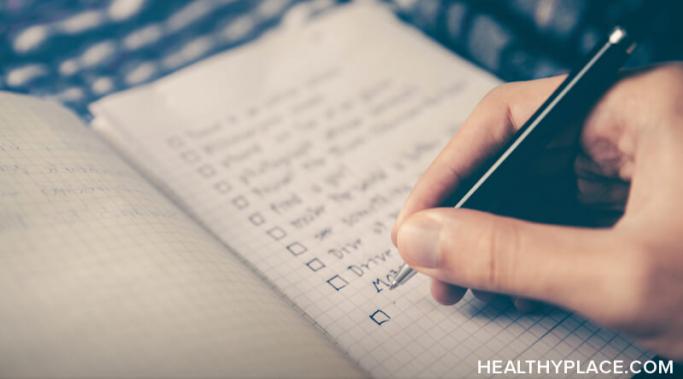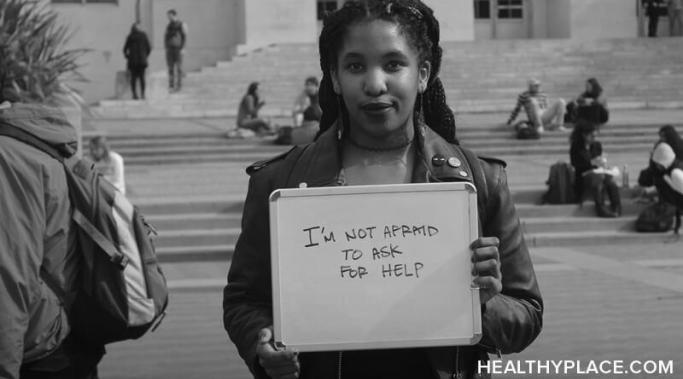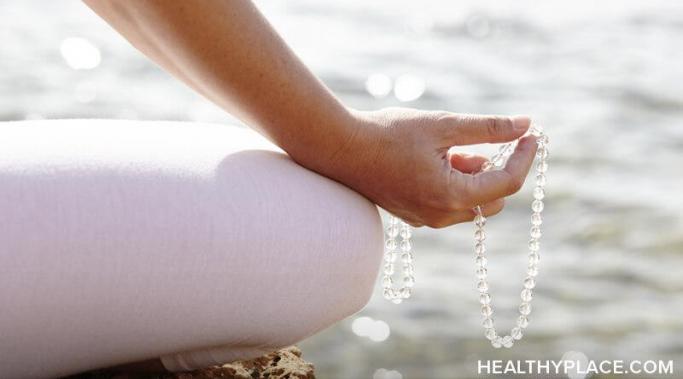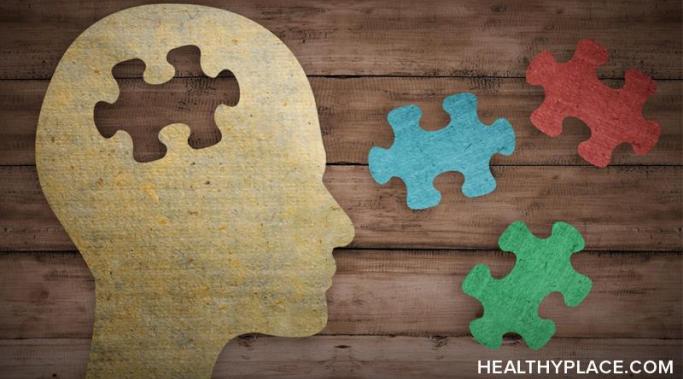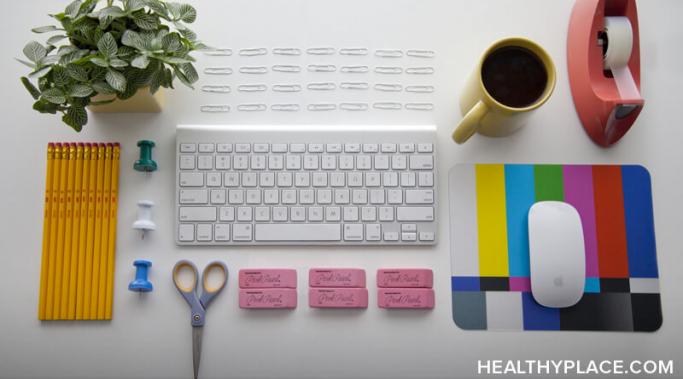My husband and I are standing in the kitchen of our new house, picking out paint colors and deciding which projects to tackle first, when suddenly I think "It doesn't matter, I won't be there to enjoy it. I'm going to end up killing myself eventually." I don't mean to think this. I don't want to think this. Luckily, I've had experience with these intrusive suicidal thoughts before, and I'm able to stay calm. I know that I don't want to die, I'm just experiencing a lot of change and my brain is seeking out the comfort of its old neural pathways.
Self-Help - Recovering from Mental Illness
Unfortunately, stigma is real, and it's dangerous. It is visible in public, and it comes full circle affecting patients and professionals alike. Stigma keeps mental illness in the dark and misunderstood, and often prevents sufferers from seeking the help they need.
I noticed some time ago that I've been choosing to stay sick because it's the devil I know. I've been dealing with mental health problems for nearly half a decade, but it's only in the last year that I've finally started making real progress toward recovery. This is because I finally admitted to myself that I was choosing to stay sick because it was what I knew how to do. Recovery was going to involve a lot of truth and change that I wasn't prepared to face, so I just didn't.
Mala beads may not help everyone, and, for me, dealing with my mental illness means medications come first. However, being open to learning additional methods to improve your life and functioning is also important. When you discover new and healthy ways to cope, go with it. Everyone is different, so use what works for you. I recently saw a post on Facebook about mala beads. I was intrigued and bought a necklace. I was excited when they arrived, and even though meditation had been difficult for me in the past, I was definitely willing to give it a try with my new mala beads.
Most of us resist mental health recovery at some point because mental illness has become our identity. Who will we be without mental illness? This series of posts will address some different reasons for resistance, starting with a personal battle of mine: staying sick because it has become my identity.
No one wants to see their child develop mental health issues or suffer in any way. Oftentimes parents with mental Illness are asked if we fear we'll pass our illness down to our children. I've always thought there are worse things to fear. Still, I can't ignore genetics, and I know my daughter is at a higher risk of developing a mental illness because I have schizoaffective disorder. So I wonder, is there a way to try to prevent it from happening? Or is my time better spent preparing her for the possibility?
Executive dysfunction is a major problem for most people with all kinds of mental illness, myself included. Executive function is the ability to organize and execute our thoughts and actions, and executive dysfunction is the opposite: scattered thoughts, missed deadlines, and intense frustration over everyday tasks. Accomplishing even the simplest of goals can require a Herculean effort with executive dysfunction.
There are benefits to anxiety although my anxiety is debilitating at times. It prevents me from doing the things I want and should do. Some days it takes a lot of courage just to leave the house. Anxiety is a huge part of my life, and it's really difficult to think there could be anything positive about it. However, there are a few benefits to anxiety, and I hope this article can shed just a tiny bit of light in the darkness of those who struggle with it.
Breakthrough symptoms caused by mental illness can really hinder your progress towards goals; however, reaching your goals is not impossible. Stress exasperates mental illness symptoms, but that doesn't mean you should give up. Understanding your symptoms as well as your limits can be crucial to your success.
Seeing a psychiatrist for the first time can be scary. But everyone around me knows that I'm very open about my experience receiving mental health treatment, so I talk about it. I work as an advocate for recovery. Many friends and family have asked me for insight when it comes to asking for help. I am always happy to provide encouragement and support, even if you're seeing a psychiatrist for the first time.
